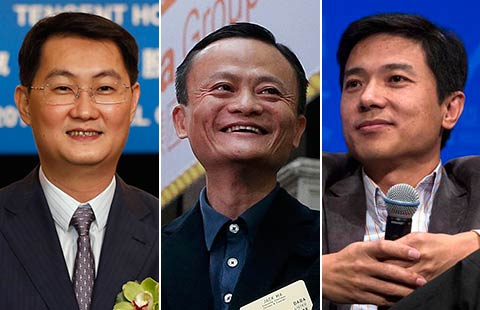Making the right global connections
By Meng Jing (China Daily) Updated: 2014-10-17 11:18The company launched a Chinese-language website named Ling Ying (lead elites) in February. It has also set up a joint venture with Sequoia China and China Broadband Capital to offer more localized services in order to connect with more than 140 million Chinese professionals.
Since the launch of the Chinese-langue website, LinkedIn has added about 1 million Chinese users to its membership base of roughly 4 million Chinese users at the time of launch in 2003. The company was founded in 2002.
"China is one of our most important markets and one of our fastest-growing markets. In addition to being the second-largest economy in the world, what is worth noting is that roughly one out five professionals in the world now live in China," he said.
"Given the size of the Chinese economy, the number of professionals in China, the growth of the middle class in China, what we are trying to accomplish in terms of creating economic opportunities and helping people find the right job is very much aligned with what our members are looking for in China," he said.
The importance of the China market has also made LinkedIn's China head Derek Shen as the only company official in international markets who reports to Weiner directly.
Industry experts said that Chinese users are different from the users in mature countries, as they do not divide their social networking activities into entertainment and professional development.
However, after spending a considerable amount of time talking to members, customers, entrepreneurs, students and people in various stages of their career, Weiner reached the conclusion that the demands in China are similar to the rest of the world.
"If the members do not have a job, then it is obvious that they are searching for a new job. Then there are the others who are employed but looking for jobs that suit their dreams. There are also those who have got the jobs that they want and are looking to make a contribution by sharing their professional knowledge and expertise with others," he said.
Weiner has identified three priorities for LinkedIn's development in China. These are building up a localized team, building membership and boosting LinkedIn's Talent Solution business. The company has already made a good start, Weiner said, adding that it has a 100 percent localized team in China.
"All of the 30 or so full-time employees that we have in China have been hired through LinkedIn," he said.
Its Talent Solution business, which contributes above 60 percent of the total revenue, has also made a good start in China with an increasing number of domestic companies looking to spread their wings abroad and hire talent locally in these regions. "Of course there are challenges, but the challenges in China are the same as the rest of the world," he said.
"The main challenge is to remain focused. It is important also for us to define our core value proposition and continue to invest in that and also expand and also move beyond the core into adjacent areas in a disciplined way," Weiner said.
|
 |
 |
| Many managers face 'career hurdles' after they turn 40 | Top 10 luxury houses in Asia |
- Alipay tool set to target overseas retailers
- Mini-stimulus moves lift yuan loans
- China's Jilin province seeks agro cooperation with Zambia
- Growers look to make hay in Russia
- Commission curbs local govt debt
- Zimbabwe works to woo Chinese tourists to boost tourism revenue
- New rail projects to boost growth
- Shell launches new payment facility
















